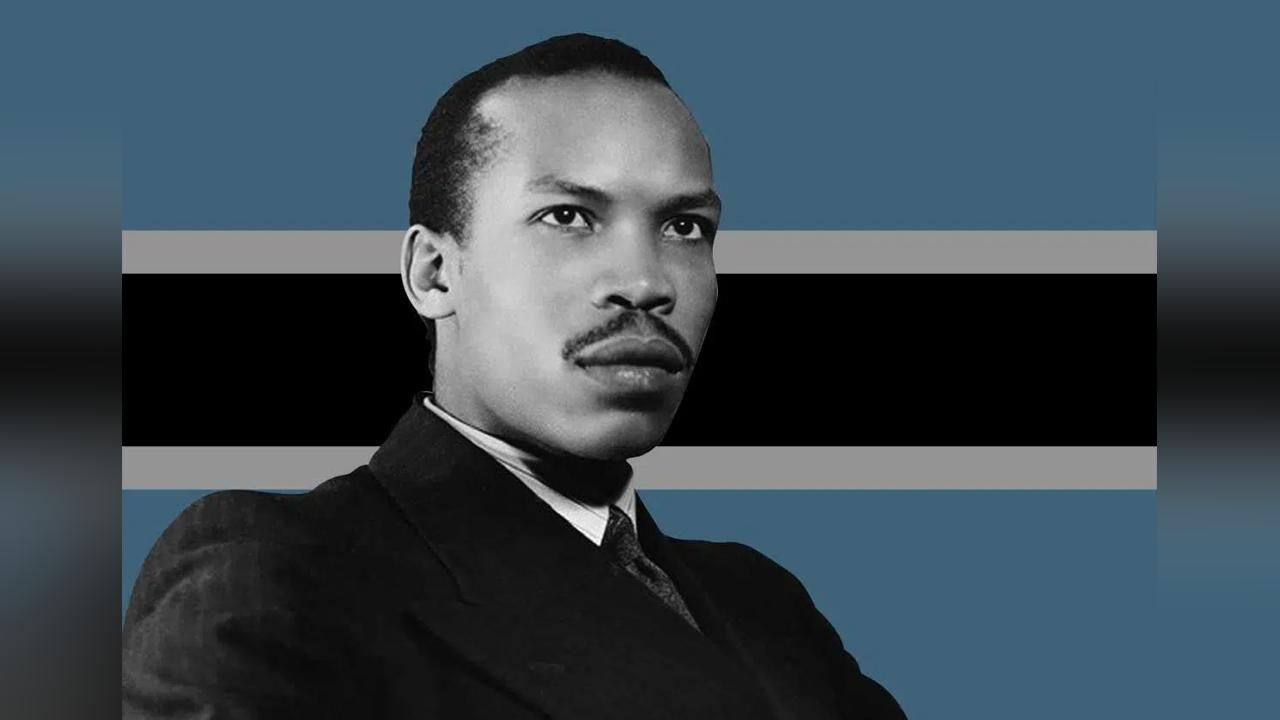Africa-Press – Botswana. July 1 marks the day on which Botswana’s founding president, Sir Seretse Khama was born.
As it is the tradition, a series of events have been organised to celebrate the day, among them a public lecture today, which starts 5pm at Cresta Lodge in Gaborone. Sir Seretse Khama Day main event will be held tomorrow from 10am at Gaborone’s Parliament grounds.
BOPA interviewed Batswana on how they remember Sir Seretse Khama. In a remarkable recount of her journey through Botswana’s political landscape, centenarian Ms Boitumelo Otlaadisa, a former right-hand woman to Sir Seretse Khama, shared her key role in formalising the Botswana Democratic Party (BDP) in her village.
Ms Otlaadisa reminisced about a local newspaper, Naledi Ya Batswana, which played a crucial role in laying the groundwork for the BDP prior to independence.
She revealed that her childhood friend and contemporary, Sir Ketumile Masire, often facilitated the sale and distribution of this publication, igniting interest in political discourse in the community.
She noted the paper’s unique characteristic, where readers were encouraged to share their thoughts on its content. While many were daunted by the challenge, Ms Otlaadisa gradually embraced the messages it conveyed, which advocated for equal rights across the social spectrum.
“For a long time, I pondered the audacity of such ideas, especially in a society where challenging the kgosi was taboo,” she reflected. Although she remained silent on the articles, she admired the insightful commentary offered by community members, particularly a gentleman named Leetile Raditladi, whose analyses inspired her.
Ms Otlaadisa conveyed that Naledi Ya Batswana acted as a catalyst, awakening the populace’s consciousness about politics and governance.
As Botswana moved toward independence from the British rule, the publication asserted the need for a singular kgosi to govern all tribes under common laws, rather than the distinct customary laws that previously divided the tribes.
In 1963, after the formation of the BDP, which was initially known as the Bechuanaland Protectorate Federal Party, Ms Otlaadisa formally joined the party.
As elections approached, she recognised the significance of having a unified leadership, leading to Sir Seretse Khama’s election as the nation’s leader.
The transition was relatively peaceful, as many Batswana were disinterested in politics at the time.
However, she soon observed a growing discontent among dikgosi regarding the new political structure, which they had initially supported.
Tensions escalated when Kgosi Bathoen Seepapitso Gaseitsiwe, known as Bathoen II, publicly announced his intention to enter politics, which prompted Sir Seretse and Masire to request that Ms Otlaadisa assume the role of organiser and encourage her fellow tribesmen to join the BDP.
Despite initially refusing out of loyalty to her kgosi, persistent persuasion from both men and her cousin, Mr Basenyapelo Chibana, led her to accept the role.
She embarked on a campaign, visiting households to promote the party, despite facing intense opposition from Bathoen II.
Rumors circulated that she was attempting to convert her fellow tribesmen to support Sir Seretse Khama over their own, Bathoen II.
Ms Otlaadisa recounted how she became adept at navigating her political role, crediting her mentors, Sir Seretse and Masire, for teaching her effective strategies for outreach, including timing her visits to ensure they happened when people were home.
Her loyalty was tested several times, especially in 1969 when accusations and offers from opposition parties rolled in.
She highlighted the importance of democracy during this tumultuous period, stating that it provided a buffer for party members amidst the strife.
While she faced with numerous obstacles, Ms Otlaadisa relished her work. She believed it formed a crucial part of introducing a political culture that empowered individuals to voice their opinions, a stark contrast to the silence imposed by traditional authority.
Reflecting on her interactions with Sir Seretse Khama, Ms Otlaadisa depicted him as a compassionate leader, someone who bridged the gap across different ethnicities and showed genuine concern for all citizens, regardless of their background.
His vision for a united Botswana ignited hope for a brighter future, a vision that dimmed with his untimely death.
Following Khama’s passing, Ms Otlaadisa indicated that Masire’s ascension to leadership was anticipated.
She praised his intellect and noted Khama’s unwavering support for him, asserting that Masire played an indispensable role in guiding Botswana toward prosperity during its formative years.
Her admiration for both leaders remained steadfast, acknowledging that their relentless efforts in securing Botswana’s independence and unity laid the foundation for a better future, ultimately ensuring that education and resources were equitably distributed among all Batswana.
As Ms Otlaadisa concluded her narrative, she expressed gratitude for the political path paved by Sir Seretse Khama and Sir Ketumile Masire, emphasising that they had planted the seeds of democracy, shifting the fabric of Botswana society toward inclusivity and dignity.
Over the years, government has awarded Ms Otlaadisa with certificates of recognition as a woman who has contributed immensely to building the country.
For More News And Analysis About Botswana Follow Africa-Press






